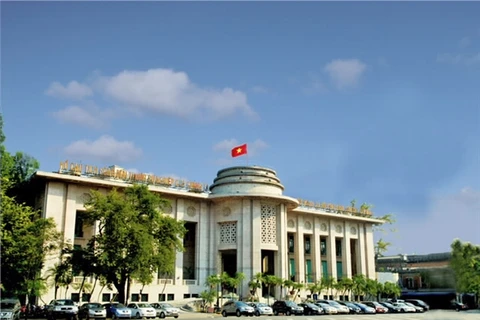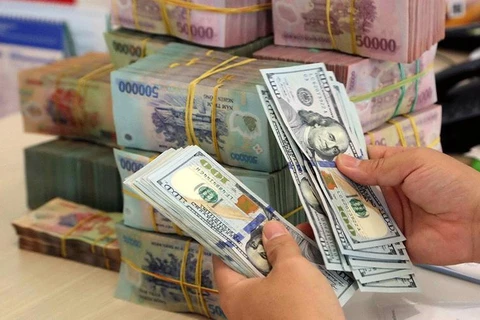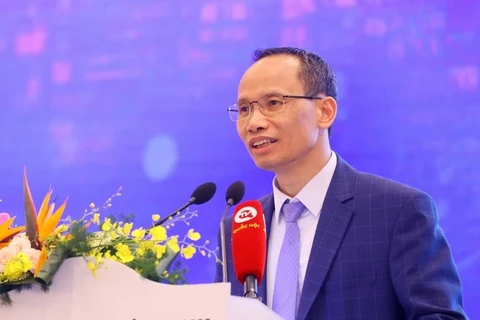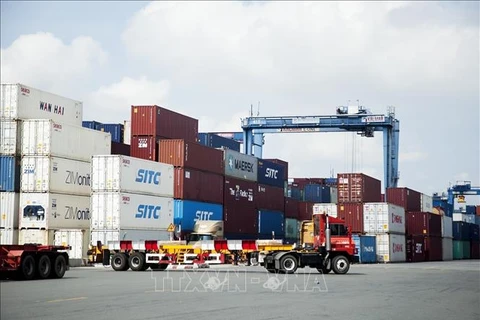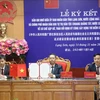The State Bank of Vietnam on January 8th organized a conference to deploy tasks of the banking sector for 2024. Politburo member, Prime Minister Pham Minh Chinh attended the conference and delivered directives in his speech.
Stabilizing capital supply for the whole economy
In her opening remarks, Governor of the State Bank of Vietnam, Nguyen Thi Hong, shared that 2023 remained a challenging year to the government in managing macroeconomic and monetary policies. However, right from the beginning of the year, the State Bank proactively and flexibly coped with evolving situations, providing comprehensive leadership and direction in various activities, fundamentally contributing to the nation's overall economic and social development.
With the joint efforts of the entire political system, by the end of 2023, the country achieved encouraging results across sectors. Specifically, the basic macroeconomic stability saw economic growth reaching 5.05%, slightly below the target but higher compared to global and regional standards. Inflation was controlled at 3.25%, below the National Assembly's target of 4.5%, exchange rates remained stable, with the Vietnamese Dong depreciating by less than 3%, and the state foreign exchange reserves improved. Additionally, interest rates returned to pre-COVID-19 levels.
With the systematic guidance and comprehensive measures of the State Bank, by December 31, 2023, credit had increased by 13.71% compared to the end of 2022, a marginal decrease from the 14.18% recorded in 2022.
The Governor also voiced challenges facing the banking sector, including the aftermath of the mass withdrawal incident at SCB at the end of 2022 still lingered, the fallout of some banks in the United States and Europe, the global credit growth slowdown, among others.
"Despite these challenges, credit institutions have remained basically stable throughout 2023. They have still increasingly mobilized capital for the whole economy. This is an encouraging result driven by joint efforts by the whole political system, including the Government, Prime Minister, Ministries, and relevant agencies, as well as the State Bank’s competent management,” said Governor of State Bank of Vietnam Nguyen Thi Hong.
Credit institutions’ recommendations
Leaders of commercial banks also shared various recommendations related to business operations during the conference, including increasing charter capital, handling bad debts, and mandatory transfers, etc.
Pham Duc An, Chairman of the Board of Directors of Agribank, suggested to enhance fiscal policies and implement measures to promote public investment from the beginning of the year. Simultaneously, addressing legal obstacles related to investment projects, construction, fire prevention and fighting, and environmental issues is essential. These measures will boost the demand for credit, assist businesses in maintaining operations, gradually overcome difficulties, and contribute to economic growth, he said.
Regarding capital increase, Tran Minh Binh, Chairman of the Board of Directors of VietinBank, proposed that the competent authorities permit VietinBank to retain all profits earned in 2023 for capital expansion. Furthermore, he recommended approving the plan to allow VietinBank to retain all annual profits for the 2024-2028 period to enhance capital, improve financial capacity, and expand credit growth potential.
Regarding bad debts, the Chairman of VietinBank believes that bad debts are a concern for the entire economy, but not only the banking sector. To address the issue, it is crucial to coordinate among different sectors and administrative levels.
Binh proposes to legalize Resolution 42 to create a concrete legal framework for activities related to debt resolution./.



